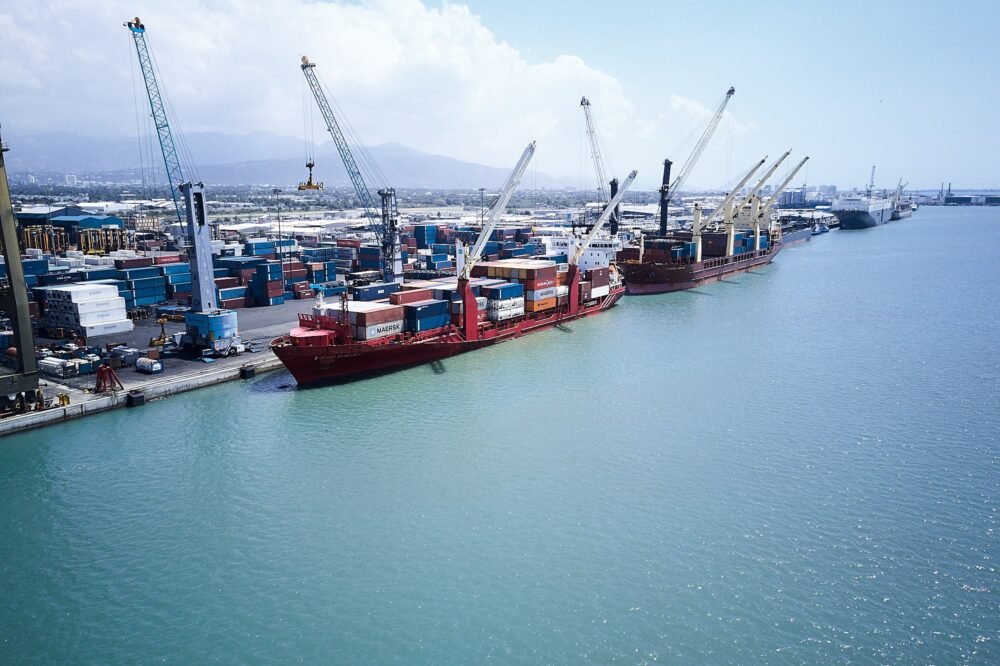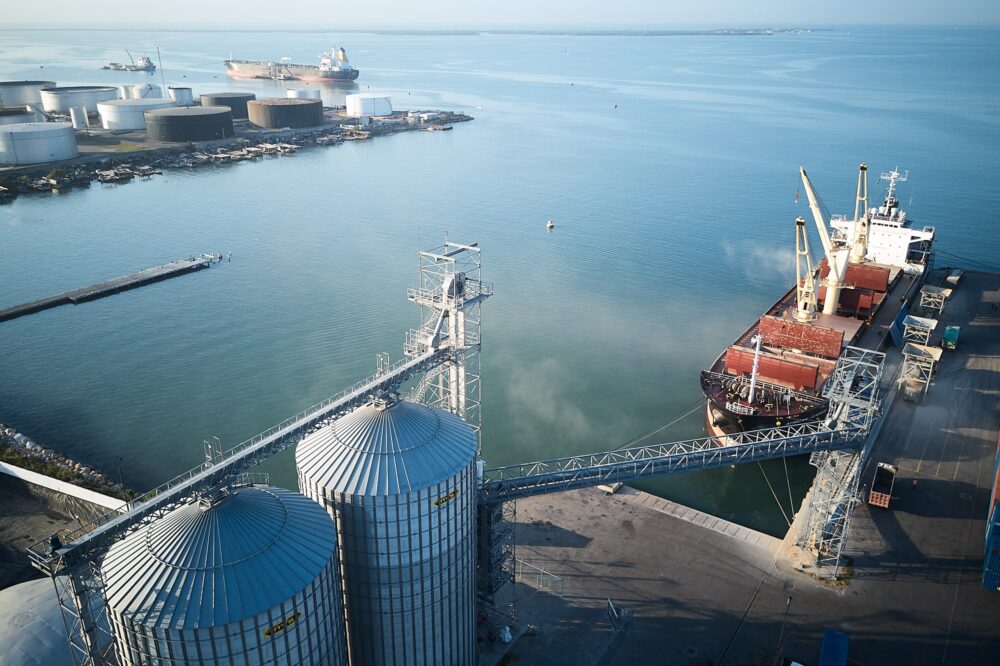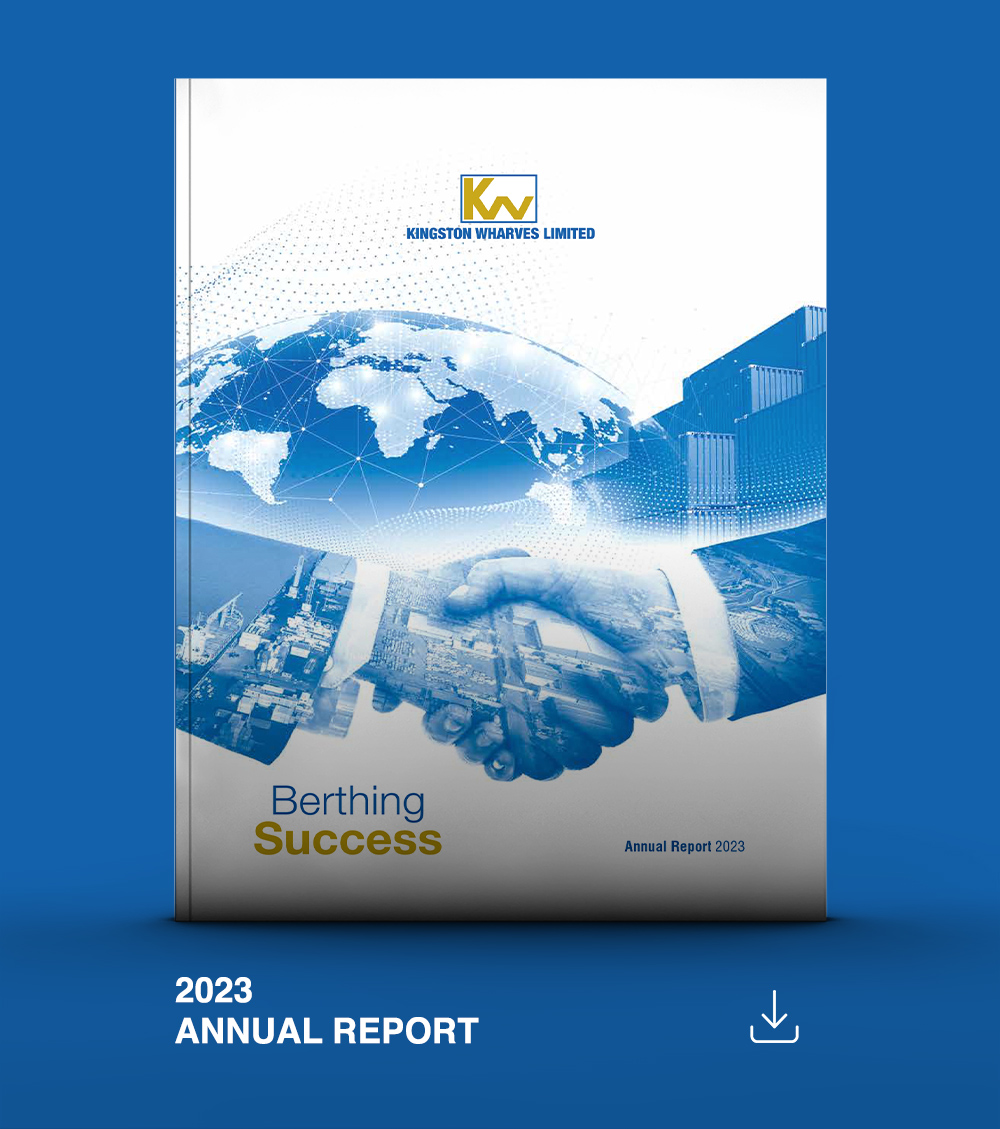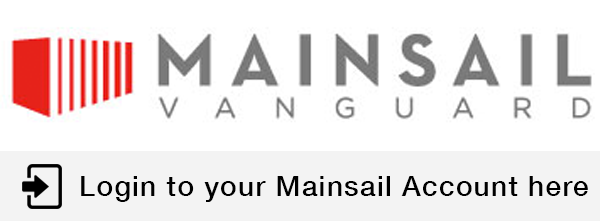Kingston Wharves Limited – A History of Collaboration, Courage and Achievement
The story of Kingston Wharves is intricately interwoven into the fabric of Jamaican economic life. For many years, the port has stood as a symbol of Jamaican nationalism and the embodiment of the audacious Jamaican entrepreneurial spirit that was unrelenting in pushing the boundaries for achievement and a place in history. The Port of Kingston was also the birthplace of the modern labour and political movements in Jamaica, with the 1938 labour unrest starting on the port and giving rise to political parties and trade unions.
In 1945, three pioneering Jamaican businessmen—Luis Fred Kennedy (of Grace Kennedy & Co.), Charles Edward Johnston and Captain Sibrandt List (founders of Jamaica Fruit and Shipping)—were among a group of wharf owners in downtown Kingston, who joined forces to start a new port company, Kingston Wharves Ltd (KWL). The company was incorporated with authorized capital of £249,000.
Today, Kingston Wharves Limited (KWL) is a multiple award winning port, one of two public terminals on the Port of Kingston, moving bulk, breakbulk and containerised cargo. With connections to over 30 destinations in the Caribbean, North America and Latin America, the company in 2019, reported assets of US$206 million and revenue of J$7.9 billion. Yet KWL’s beginning was a humble one, built and sustained through partnerships, and bold and courageous leadership throughout the decades.
The Age of the Finger Piers
Charles Johnston, a KWL Director and grandson of one of the founders, gives an account of the port’s early beginnings and its development, “Both companies, Jamaica Fruit & Shipping and Grace Kennedy, leased the Grace Building at 64 Harbour Street and the wharf that was attached to it. For years, the two companies operated the wharf together and had their administrative offices there. The building would later house the offices of Jamaica Producers (JP), also an early shareholder. Some years after that JFS and Grace Kennedy bought the wharf and the building on a 50-50 basis.”
Though Charles Johnston was only four years old at the time of KWL’s establishment in 1945, the story of the port was passed on to him partly through written history and, in part through family lore.
“In 1945 a number of other wharf owners on the port of Kingston (who were mostly Jamaicans) joined the alliance to become part of Kingston Wharves. Everybody put in their wharves, buildings and assets,” he explained. Those joining the alliance included, H MaCaulay Orrett, George & Branday and Arnold Malabre. In 1963, the Royal Mail Line Pier was incorporated into Kingston Wharves, expanding its facilities to 12 berths.
According to Mr. Johnston, the wharf operators felt that they would be stronger together to deal with the trade unions and shipping lines. “The unions were picking off each pier owner individually and playing each against the other, which created problems on the port of Kingston. When the wharves came together in the alliance under KWL, they had stronger negotiating power. It was the same reason that the Shipping Association of Jamaica was formed,” Mr. Johnston noted.
In those days, the principals in KWL who were involved in various areas of shipping channelled their business through the port company.
Some of the shipping lines that utilised Kingston Wharves were Canadian National Steamship Line; the Canada Jamaica Shipping line, Furness Withy Lines, Grace Line, Royal Mail Line, and of course Jamaica Banana Producers Shipping Line, among others,” Mr. Johnston said.
Other shipping lines calling at Kingston Wharves included New Zealand Shipping Company, Hapag Lloyd, CGT (French Line), Federal Line, Blue Star Line, Hamburg Süd, Jamaica Direct Fruit Line, K Line, Mitsui OSK, YS Line, Sealand, Common Brothers, Harrison Line and Zim.
Those Who Contributed
Kingston Wharves would continue to experience steady and incremental growth at different stages of its history, with each generation of Board members, executives and team members making their contribution.
Douglas Judah was KWL’s first chairman and legal advisor, who was active in its original formation. Luis Fred Kennedy was the first managing director and later its chairman. Managing directors and Chief Executive Officers who followed were Carl Gaynier, Bryan Challis, Paul Scott, Mike Belcher, Anthony Barnes, Ernest Girod, Robert Kinlocke, Grantley Stephenson and now Mark Williams. In 1966, Paul Scott proposed the rationalisation of labour on the waterfront, a defining move that changed the way labour was engaged and deployed, not just at KWL, but on the entire waterfront.
Other persons who contributed significantly to the growth and development of Kingston Wharves Limited included Everard Cox Snr., Bobby McConnell, Eric Milstead, and the imposing wharfinger MacG Hall.
In identifying a number of defining moments in KWL’s history, Mr. Johnston said: “The first one was the establishment, when all the wharf companies came together to form KWL; that move was empowering and would positively change the trajectory of the shipping industry in Jamaica.”
The Move to Newport West
Mr. Johnston identified another defining moment as the decision for KWL to move from downtown to Newport West: “They did so in 1966; which I am not sure was the right decision. They could have renovated the dockside wharves downtown. That would have kept the life in downtown Kingston. Instead, it sucked the life out of downtown Kingston and then the lawyers moved to New Kingston. So downtown Kingston became like a shell and it is just recovering now. KWL also moved to Newport West late. They allowed Western Terminal to beat them down here.”
In 1964, Kingston Wharves had purchased 56 acres of land that was reclaimed as part of the Newport West Project. When the company moved to Newport West in 1966, it welcomed its first vessel—the S.S. Santa Rosa, at its new deep-water berth facility. At Newport West, KWL occupied Berths Five to Nine, and the Western Terminal operations covered Berths One to Four.
Whatever his retrospective view about the move out of downtown Kingston, Mr. Johnston agrees that Kingston Wharves has grown and thrived at its Newport West Location. In 1994, Kingston Wharves Limited merged with Western Terminal and assumed control over that operation and its four berths, allowing KWL to occupy all nine deep-water berths up to today. The following year, KWL listed on the Jamaica Stock Exchange as it raised capital to expand its operations.
As the new millennium dawned, KWL would experience another critical shift, namely, when the ownership structure changed. Grace Kennedy Limited gave up its controlling interest in KWL, after 60 years of operating the wharf. “This development allowed KWL to, in essence manage itself, and Grantley Stephenson became the new CEO, the first not to be appointed by Grace Kennedy,” Mr. Johnston noted, pointing to this ownership change as another defining moment.
Another pivotal moment according to Mr. Johnston, came in the mid 2000s. “KWL bought out the private stevedores. Port Services Ltd, Jamaica Fruit and Shipping, Maritime and Transport, Transocean and others had stevedoring companies at the time. Grantley Stephenson as the CEO resolved the issue concerning stevedoring at KWL by buying out the stevedores, opening the door for the company to carry out its own stevedoring functions on the Port of Kingston. This led to greater efficiency and more cost savings,” Mr. Johnston recalled.
The Jamaica Producers Group
By 2012, as the company sought additional financing for its expansion, Jamaica Producers Group (JP) provided the answer, injecting capital and gaining major interest in the company. This development is identified as another defining development in the history of the organisation.
CEO of the Jamaica Producers Group and current Chairman of Kingston Wharves Jeffrey Hall who structured the deal to acquire the major stake in KWL, underscored the significance of that moment and JP’s subsequent role in the growth and development of the port company. JP’s initial stake was 20 %, with an additional 22% acquired by 2014.
“Certainly, the JP group saw the natural synergies to be derived from that major alliance. We have been involved in KWL since the inception, as one of its original shareholders, and we had developed confidence in the depth and vision of the management team, then led by Mr. Grantley Stephenson. However, with our increased stake, we had the ability to make a greater mark on the organisation and impact its strategic direction,” Mr. Hall noted.
Mr. Hall disclosed that JP initiated the move to have longstanding customer Seaboard acquire shares in KWL. “When Seaboard purchased an interest in KWL it cemented the strategic partnership with a key customer and this gave added confidence to the bold investment programme,” the Chairman said.
“The Jamaica Producers Group brought to the table, global business expertise and a clear commitment to the maritime industry, as well as a fresh perspective and a vision for moving forward,” Mr. Hall observed. He noted that JP’s move to bring greater alignment with the organisation’s business model was a seminal step that strengthened KWL’s governance structure, empowered management and helped promote profitability.
Modernisation and Expansions Plan
Robert Kinlocke, the last Managing Director under the Grace Kennedy era, started a modernisation move. Among other steps, he bought equipment to assist in receival and delivery. The investment paid off as the company was able to recoup the investment in three years. This was the catalyst for the company to invest greatly in equipment and get involve in the lucrative stevedoring operation starting with a few car vessels.
Grantley Stephenson who served as CEO from 2003 to 2019 (eight of those years as Executive Chairman), presided over a significant period of modernisation of KWL that was instrumental in the turnaround of the port terminal and its modern standing.
Kingston Wharves purchased its first crane in the post Grace Kennedy era in 2004, a Gottwald Mobile Harbour Crane, which strengthened its stevedoring operations. Before that, cargo was loaded and offloaded cargo using the ships’ cranes and rented equipment. That first crane was only the beginning, as Kingston Wharves would go on to acquire five additional mobile harbour cranes, including two state-of-the-art Liebherr Cranes purchased within the last five years. KWL is now a well-equipped company that is driven by digital technology.
In 2007, three years after the acquisition of the first crane, Kingston Wharves undertook another major infrastructural development project. This time it was the redevelopment of Berths 8 and 9 at a cost of US$26 million, financed through a loan from First Caribbean Bank. Completed in 2009, the project entailed the demolition of the existing berth facilities that were compromised. “We therefore could not service vessels from there. In their place, we constructed new berthing facilities, using modern techniques. We were also able to repay the bank in less than the time allocated,” the former CEO stated.
“If we had not undertaken these two developments (the acquisition of equipment and the redevelopment of Berths 8 and 9) we would not have been able to efficiently serve vessels like Seafreight, Seaboard and others. In fact, as a result, Seaboard too was able to establish its transhipment hub at KWL. Also, during a hurricane, an 8500 TEU Maersk vessel was diverted from the Bahamas to KWL. This could not have been possible without these investments,” Mr. Stephenson stated.
Vessel lines such as Seaboard and Crowley have been longstanding partners. Apart from having representatives on the Board of the company, Seaboard vessels call on the KWL terminal at least four times per week, plus the line has sharing arrangements with other lines. In addition to serving other shipping lines such as Evergreen and a number of feeder services, KWL also collaborates with a host of shipping agents, customs brokers, freight-forwarders, Non-Vessel Operating Common Carriers (NVOCC), haulage contractors, and Government entities such as Jamaica Customs and the Port Authority of Jamaica to serve customers.
In 2014, KWL advocated for and was granted Free Zone status, enabling the company to benefit from tax incentives to underpin further growth. In 2020, Kingston Wharves would make the transition to Special Economic Zone regime following the passage of that legislation in 2016, and its replacement of the Free Zone Act. “At the time I saw the Free Zone push as a key element in company’s continued development. This was a turning point and a positive move that helped to set us on a firmer footing for the future,” observed Mr. Stephenson.
The Panama Canal expansion was completed in 2016, expanding the channel’s capacity from ships that were around 5000 TEUs to 15,000 TEUs, installing additional locks to accommodate the larger or Post Panamax vessels. In anticipation of the enlarged Panama Canal, KWL began laying the groundwork for further expansion.
Game-Changing Logistics Infrastructure
Kingston Wharves’ game-changing 160,000 sq. ft. Total Logistics Facility (TLF) was one of these major undertakings. Officially opened in 2018, it propelled KWL more fully into logistics services. “Earlier when we had started acquiring land, it was with this in mind; that we would construct a large off-dock warehouse,” Mr. Stephenson said.
The TLF houses the company’s corporate offices, client services operations, warehouse services, and logistics suite space for rental. Its construction allowed Kingston Wharves to get involved in 3PL and 4PL logistics services such as order picking and packing, postponement services, order fulfilment, and warehousing and returns, along with FCL and LCL warehouse operations, among others. The TLF, along with KWL’s Kingport Warehouse Complex warehouse, constructed in 1980 and other acquired facilities, bring KWL warehousing capacity to over 340,000 sq. ft.
Diverse cargo handling necessitated the re-allocation of yard space on the KWL terminal. The company would demolish its on-dock warehouses to liberate yard space for a range of cargo types. This would pave the way for what Mr. Stephenson cited as another watershed activity—the establishment of KWL as a motor vehicle transhipment hub.
“Although for many years KWL was engaged in small scale transhipment trade to the Cayman Islands, in late 2009, we entered a long-term agreement with one of the largest motor shipping companies in the world, Hӧegh Autoliners of Norway. The deal saw Kingston Wharves becoming the transhipment hub serving the Caribbean and Latin America. This business segment has grown over the years and now serves 30 countries across the region,” Mr. Stephenson further disclosed.
Today the Kingston Wharves terminal serves six autoliners. “The service and partnership with Hӧegh has been so efficient that other car carriers such as Eukor and Glovis were attracted to Kingston, joining K-line, NYK and Mitsui who were already calling at KWL,” Mr. Stephenson added.
KWL leased land at Tinson Pen to establish the Global Auto Logistics centre which enabled the company to accelerate its move into automotive logistics for the domestic and transhipment markets. GALC now affords the company the opportunity to manage the motor vehicle inventory of leading auto retailers in Jamaica as well as the business generated through the autoliners. In 2019, Kingston Wharves handled over 120,000 motor vehicles, a significant portion of which was for transhipment.
“The motor vehicle business has been one of the mainstays of the company,” the former CEO pointed out.
Award Winning Port
Kingston Wharves is now an internationally acclaimed port company, being the recipient of numerous awards over the years. KWL has been named the Multi-Purpose Terminal of the Year by the Caribbean Shipping Association (CSA) an impressive five times in the modern era—2006, 2007, 2009, 2012 and 2015. KWL also achieved the best port award from CSA in 1993, which it shared with the Port Authority of Jamaica. The company has received numerous other accolades, such as CSA’s Most Efficient Port Award in 2008 and 2010, and the Best in Chamber Award for Large Companies in 2017 from the Jamaica Chamber of Commerce.
Kingston Wharves’ development was not by happenstance, but due to well-timed and deliberate strategic moves and partnerships solidified at different stages of its history.
“Partnerships have been pivotal in everything we have undertaken and accomplished in the last seven-and-a-half decades. The financing of our expansion plans; exploration of new markets and profitable ventures we have undertaken, have all been achieved through partnerships with individuals and companies in various areas of the shipping industry, as well as in banking and other sectors beyond the maritime industry,” Mr. Stephenson observed.
It is a view that Charles Johnston also emphasised, “The strength of the company is that we have a group of people in the shipping industry who are involved in the company; not just one person. That means that each brings vast experience in shipping, and his or her business and connections to the partnership; this has always been the strength of Kingston Wharves. At the beginning, it was a group of people who were in the shipping industry that got together, and the same principle of partnership applies today,” declared Charles Johnston.









